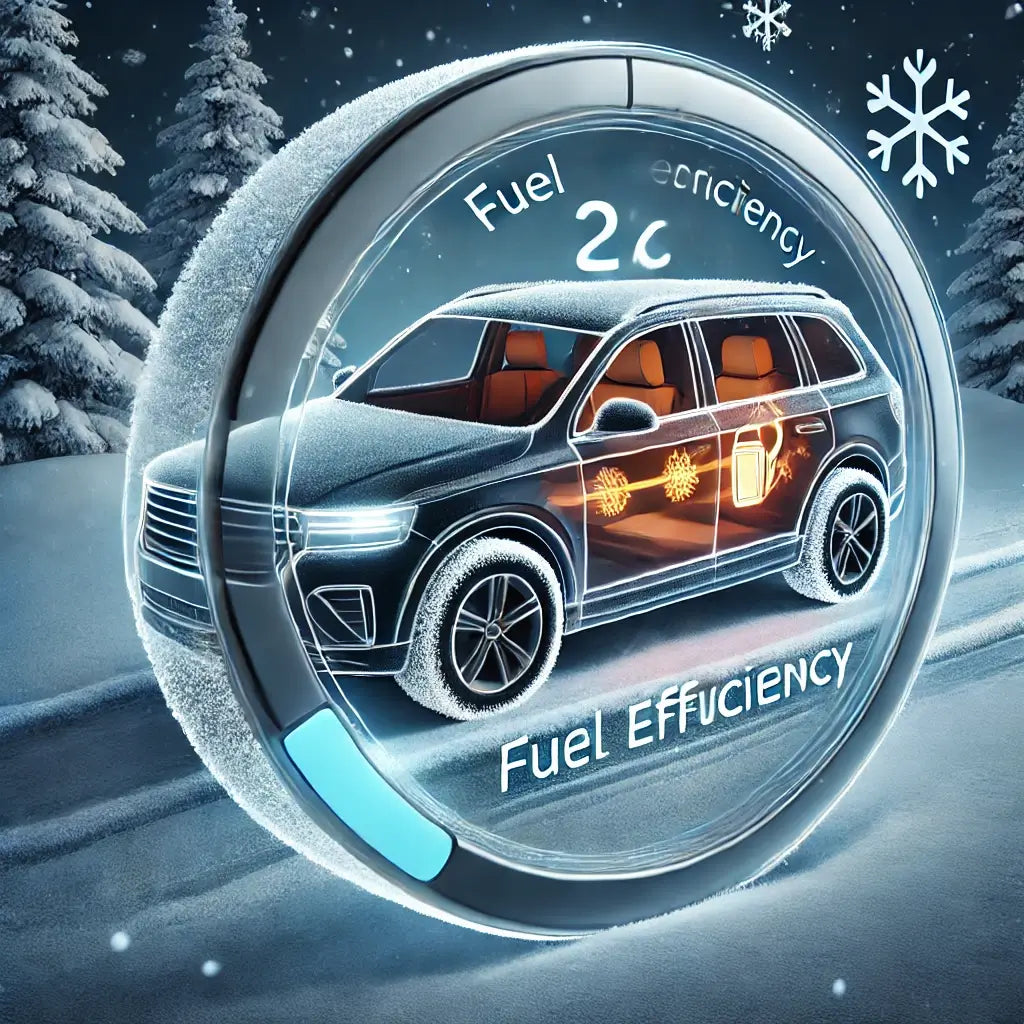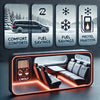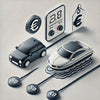How much fuel does a parking heater consume?

How much fuel does a parking heater consume?
The fuel consumption of a parking heater is an important factor to consider if you frequently drive in cold climates or stay in your vehicle. Parking heaters consume much less fuel than idling the engine, making them a more efficient solution for heating the interior of your vehicle. In this article, we delve deeper into how much fuel a parking heater consumes, the factors that influence this, and how you can optimize fuel consumption.
How Does the Fuel Consumption of a Parking Heater Work?
A parking heater operates on fuel, such as diesel or gasoline, to generate heat. The process starts with drawing in air from outside the vehicle, which is then heated in the combustion unit. This warm air is then circulated through the interior of the vehicle. While fuel consumption depends on various factors such as the size of the heater, the type of vehicle, and the temperature, most parking heaters consume relatively little fuel.
One of the main advantages of a parking heater is that it does not require the engine to run in order to produce heat, which means saving fuel that would otherwise be consumed by idling the engine. This can significantly reduce fuel costs, especially during cold winter months when the vehicle needs to be heated frequently.
Fuel consumption per Model
The fuel consumption of a parking heater varies depending on the model and capacity of the heater. Here is an overview of the average fuel consumption per type of parking heater:
- 2KW models: These lighter models consume on average between 0.1 and 0.2 liters of fuel per hour. This makes them ideal for smaller vehicles such as cars or vans, where they operate efficiently without consuming much fuel.
- 5KW models: These more powerful models consume approximately 0.3 to 0.4 liters of fuel per hour. They are designed for larger vehicles such as campers, vans, or trucks, where more heat is needed to heat the interior.
- 8KW models: The most powerful parking heaters consume up to 0.5 liters of fuel per hour, especially when operating continuously at the highest setting. These models are often used in large vehicles such as trucks, buses, or boats and are ideal for heating larger spaces.
Although larger models consume more fuel, they also provide significantly more heating power, which is essential for heating larger vehicles in cold climates. It is important to find the right balance between fuel consumption and heating capacity based on your specific needs.
Factors Affecting Fuel Consumption
The fuel consumption of a parking heater is influenced by various factors, including:
1. The Capacity of the Stove
Larger parking heaters with higher power consume more fuel, but they also provide more heating power. If your vehicle is large and you need heat quickly, a more powerful heater may be the best choice, even if it consumes more fuel. For smaller vehicles, however, a lighter heater may be sufficient and will consume significantly less fuel.
2. The Outside Temperature
The outside temperature plays a significant role in the fuel consumption of your parking heater. In colder temperatures, the heater needs to work harder to warm up the interior and maintain the temperature, resulting in higher fuel consumption. When the temperature outside is above freezing point, the fuel consumption will be lower as the heater requires less energy to heat the cabin.
3. The Size of the Vehicle
The type of vehicle and the size of the interior also influence the fuel consumption of the heater. Larger vehicles, such as trucks, buses, or campers, require more heating capacity to keep the entire cabin at temperature, resulting in higher fuel consumption. In smaller vehicles, such as cars, less power is needed to heat the space, reducing fuel consumption.
4. Frequency and Duration of Use
The longer you let the heater run, the more fuel you will consume. This is especially true during colder nights when the heater remains on for extended periods to keep the interior warm. By limiting the duration and frequency of use, you can reduce fuel consumption and heat your vehicle more efficiently.
Tips to Optimize Fuel Consumption
1. Use the Timer function
Modern space heaters are often equipped with a timer function that allows you to set the heater to turn on or off at specific times. By only running the heater when necessary, you can prevent unnecessary fuel consumption. This is particularly useful if you leave the heater on overnight, as you can manage the duration of use and limit fuel consumption.
2. Set the Thermostat Correctly
Instead of running the heater continuously at the highest setting, you can save energy and fuel by setting the thermostat to a comfortable but lower level. Lowering the temperature by just a few degrees can make a significant difference in overall fuel consumption without compromising comfort.
3. Ensure Good Insulation
A well-insulated vehicle retains heat better, reducing the need for the heater to run frequently to maintain the temperature. This can significantly contribute to lower fuel consumption, as the heater doesn't have to work as hard to keep the interior warm. Investing in better insulation for your vehicle can lead to substantial savings on fuel costs in the long term.
4. Regular Maintenance
Regular maintenance of your parking heater can help maintain efficiency and minimize fuel consumption. A well-maintained heater operates more smoothly and consumes less fuel. Regularly check the air filters, fuel filters, and fans of your heater to ensure optimal performance.
Conclusion
Parking heaters generally consume much less fuel than idling the engine, making them an efficient solution for heating your vehicle in cold climates. Fuel consumption varies depending on the model and conditions, but most parking heaters consume between 0.1 and 0.5 liters of fuel per hour. By choosing the right heater based on your vehicle and needs, and by taking simple energy-saving measures, you can further optimize fuel consumption and maximize the efficiency of your parking heater.
View our selection of fuel-efficient parking heaters to make the right choice for your vehicle.




